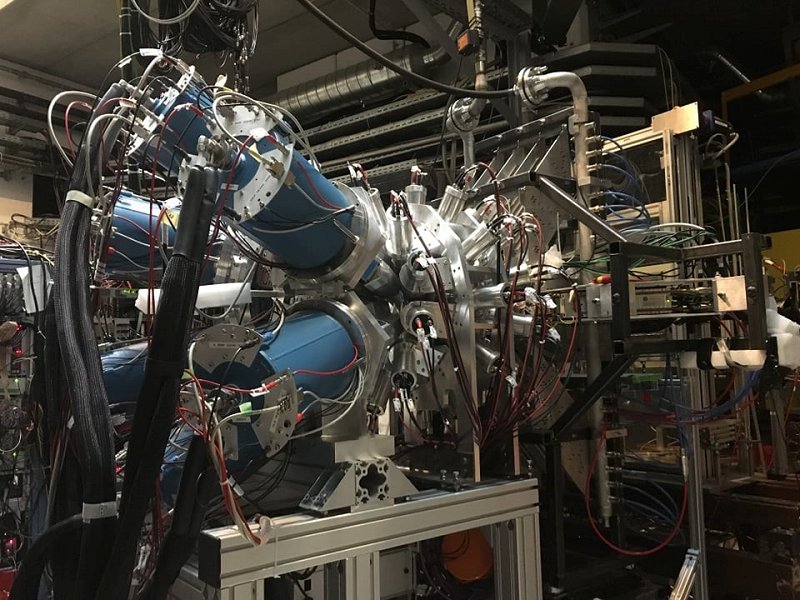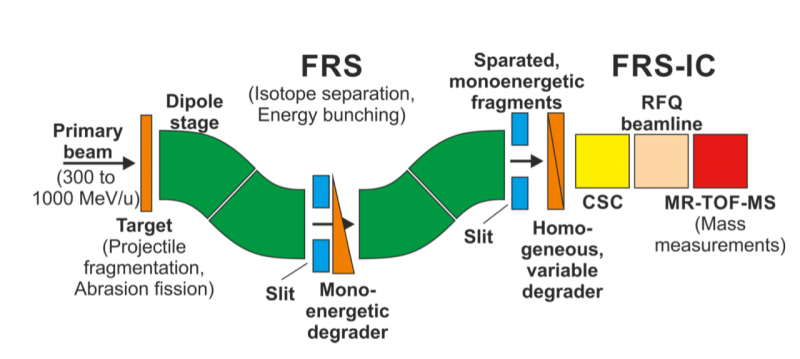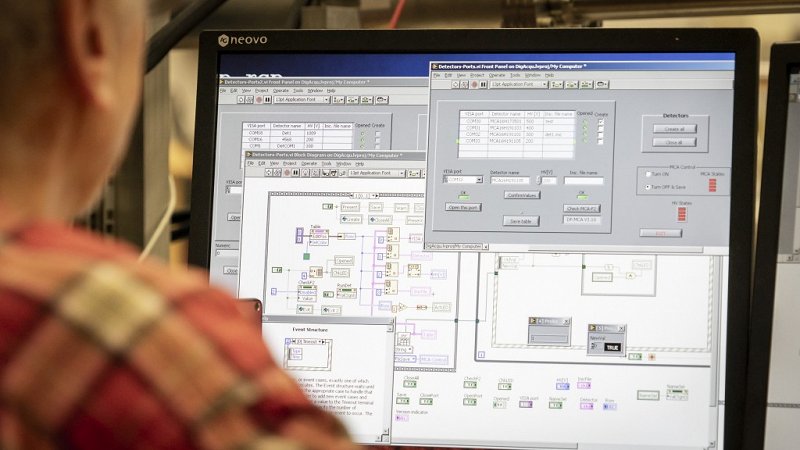FAIR - Facility for Antiproton and Ion Research
Jožef Stefan Institute,
Jamova 39,
SI-1000 Ljubljana,
Slovenia
T:+38640267696
Leader: Dr Jelena VesićCoworkers: Assoc. Prof. Dr Matjaž Vencelj, Žiga Brenčič, Dr Gregor Košir
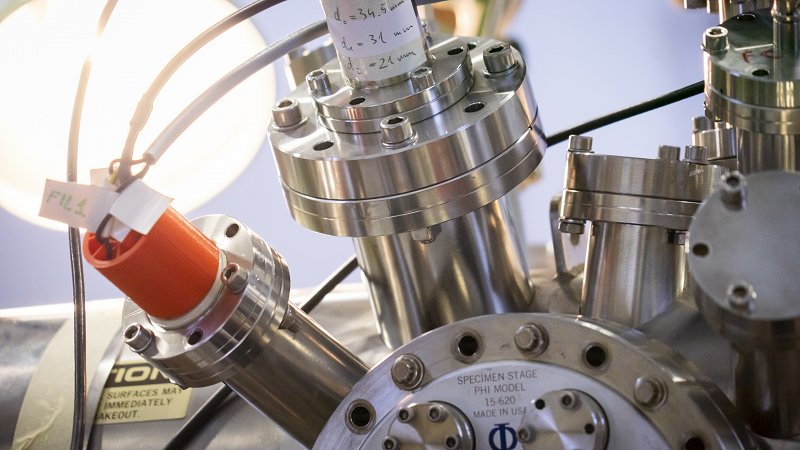
 The Facility for Antiproton and Ion Research FAIR accelerator center is one of the largest projects for fundamental research in the world. The accelerator complex is currently being built on the premises of one of the leading laboratories for nuclear physics, GSI (GSI Helmholtzzentrum für Schwerionenforschung), Germany. Its existing accelerator facilities will become part of FAIR and will serve as first acceleration stage. Including Slovenia, nine partners and one associated partner are currently member states of FAIR. The member states of FAIR signed an international agreement that also established FAIR GmbH, to which they transferred the responsibility for construction and operation of the FAIR particle accelerator. In parallel with FAIR construction, FAIR Phase-0 research program is taking place in GSI facility. Namely, phase 0 of FAIR is dedicated to in-beam use of detector systems planned for FAIR, as well as for cutting edge research programs, utilizing already existing and currently upgraded accelerator systems at GSI. These experiments are of outmost importance since they will be a starting point for FAIR day 1 experiments. Our scientists are actively involved in FAIR detectors development and procurement as well as in planning and preparation of FAIR Phase 0 state of art nuclear experiments.
The Facility for Antiproton and Ion Research FAIR accelerator center is one of the largest projects for fundamental research in the world. The accelerator complex is currently being built on the premises of one of the leading laboratories for nuclear physics, GSI (GSI Helmholtzzentrum für Schwerionenforschung), Germany. Its existing accelerator facilities will become part of FAIR and will serve as first acceleration stage. Including Slovenia, nine partners and one associated partner are currently member states of FAIR. The member states of FAIR signed an international agreement that also established FAIR GmbH, to which they transferred the responsibility for construction and operation of the FAIR particle accelerator. In parallel with FAIR construction, FAIR Phase-0 research program is taking place in GSI facility. Namely, phase 0 of FAIR is dedicated to in-beam use of detector systems planned for FAIR, as well as for cutting edge research programs, utilizing already existing and currently upgraded accelerator systems at GSI. These experiments are of outmost importance since they will be a starting point for FAIR day 1 experiments. Our scientists are actively involved in FAIR detectors development and procurement as well as in planning and preparation of FAIR Phase 0 state of art nuclear experiments.
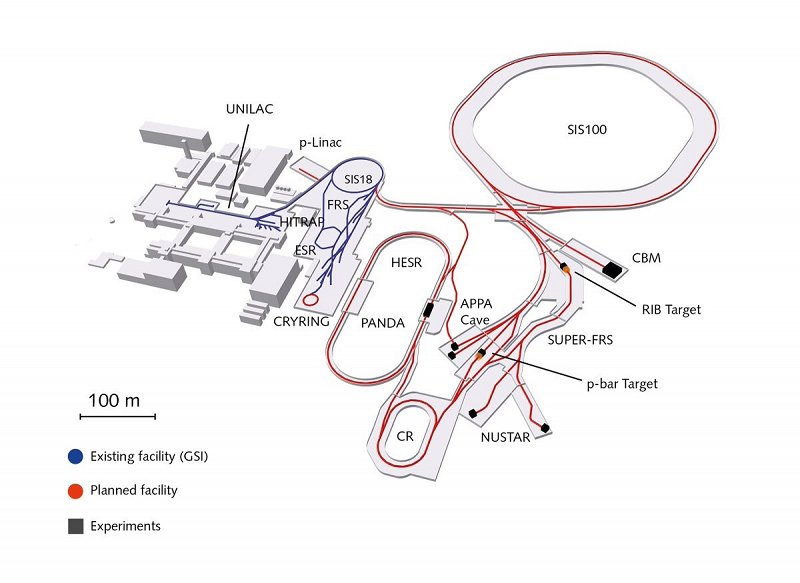
Figure above: The existing GSI accelerators UNILAC, SIS18 and ESR (blue) and the FAIR facilities (red). FAIR comprises the SIS100 synchrotron; the antiproton separator and the super fragment separator (Super-FRS); the collector ring (CR); high-energy storage ring (HESR); and experimental stations for APPA, CBM, NUSTAR and PANDA. The proton linac and the CRYRING also belong to the FAIR instrumentation portfolio. Photo credit: GSI/FAIR
The efforts of our scientists are focused towards NUSTAR physics program, which implies studies of NUclear STructure, Astrophysics, and Reactions of exotic atomic nuclei relevant for the creation of the elements in the universe. More specifically, we have been mostly involved in two NUSTAR subcollaborations, namely HiSpec/DeSpec (HIgh-resolution in-flight SPECtroscopy/DEcay SPECtroscopy), SuperFRS (Super FRagment Separator).
The FAIR facility will enable parallel physics programs and will provide exceptional research opportunities for slovenian scientists, as well as immense possibilities for a tight cooperation with slovenian industry in developing new technologies. FAIR as the largest scientific international project is an opportunity to share knowledge between slovenian and worldwide collaborators in the common efforts to develop state of the art detectors and perfom cutting edge physics in experiments involving the most exotic nuclei.
